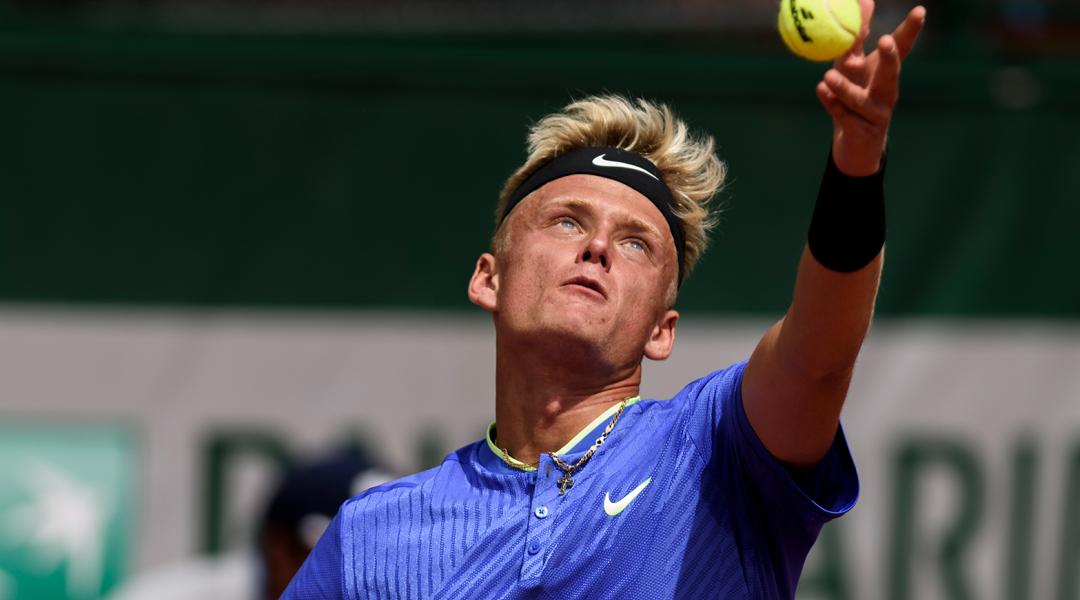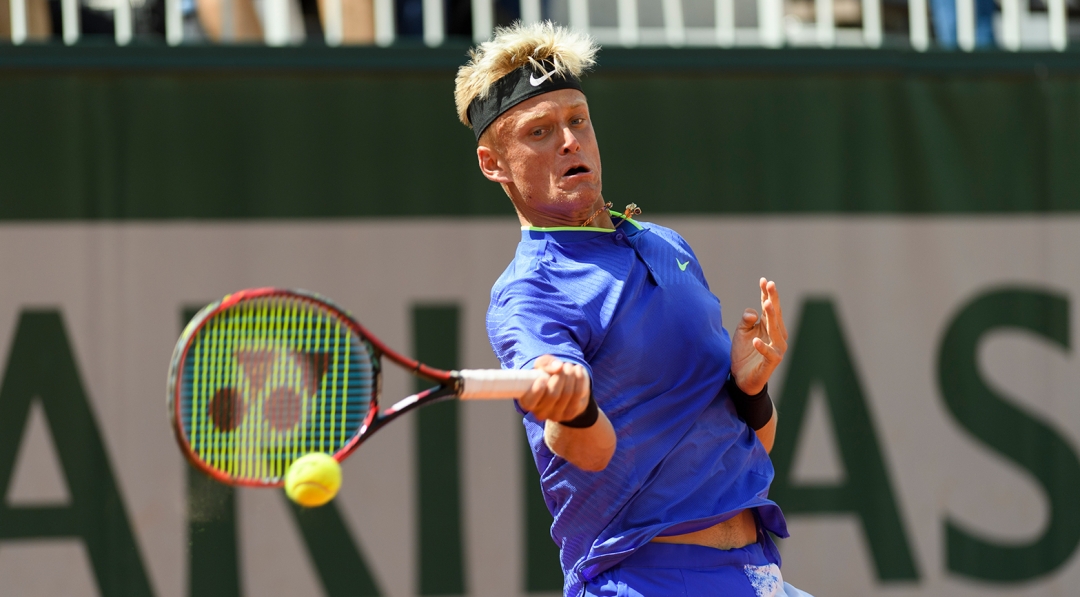Nicola Kuhn
A History of Personal Achievement

Over the past three decades, Spain has established itself as one of the great powers in tennis producing a string of talented players. Bruguera and Sánchez-Vicario were followed by Ferrero and Moyá, among others, and after them came Nadal, Muguruza and company. But what about the future? Many already point to young Nicola Kuhn as the next flag bearer of the new generations.
His light eyes and blond hair are typical of Austria, where Nicola Kuhn was born in 2000. They are also common physical features in Germany, the country his father comes from and whose colours he defended in youth competitions, as well as in Russia, his mother’s homeland. However, Nico, a citizen of Alicante ever since he moved to Torrevieja as a three-month old baby, feels 100% Spanish.
After a 2018 marked by injuries, at the beginning of the year he won his first Grand Slam match (at the Australian Open), and he is already on the ATP list as a professional player, currently ranked 178th in the world. Also in 2019, he won his second ATP Challenger title in El Espinar (Segovia), much like Nadal and Feliciano López did in the past, another addition to an already impressive track record as a junior player: he has been number 1 in the Tennis Europe ranking, MVP at the Davis Cup in 2016, champion in doubles and singles runner-up at Roland Garros in 2017. And it does not end here: the phenomenal Nicola Kuhn has only just begun.
Your name has been going around for some time as one of the big promises of world tennis. Do you feel any pressure?
It’s been happening to me since I was little. Still, I don’t consider myself more talented than anyone else and, even though you see your name popping up everywhere, there’s no doubt in my mind that if you don’t work from day one, all those aspirations will disappear and your competitors will surpass you.
Do you think you have a special talent for this sport?
Fortunately, talent is not something that makes all the difference in this sport. You have to train a lot to get what you want and be able to dedicate yourself to your passion. I do believe I have some talent that can give me an edge, but it’s far from essential to make the leap to doing this professionally.
“I put so much pressure on myself that it led me to stop enjoying tennis, to suffer when entering the court or when I had to close a set”
How do you rate this year 2019, in which you won the El Espinar Open in Castilla y León?
It hasn’t been an easy year. After my injuries in 2018 I was left physically and psychologically damaged. I put such pressure on myself that it led me to stop enjoying tennis, to suffer every time I had to enter the court or when I had to close a set. You could say that pressure made me step up and make certain decisions in my life that led me to change my way of seeing and doing things, and now I feel happy again, and I’m having fun playing. The confirmation that my new approach worked came during the El Espinar Open, where I felt really comfortable playing before an audience that supported me from the start. I hope the RFET [Royal Spanish Tennis Federation] remains strong so that there will be tournaments like this for many years to come.
As you say, the injuries you suffered in 2018 somehow impeded your progression. Would you say this has been the most complicated stage of your career?
Injuries and how to deal with them is never easy and, in my case, as I said before, they helped me make changes in the way I play and live so as to cope with them the best way possible. It may have been a bitter time, but I’ve learned from it and I hope to come out much stronger.
You started playing for Germany in the lower categories and you couldn’t play for Spain until you became naturalised. Why did you choose to represent our country rather than Germany?
Although I also have a German passport, I’ve lived in Spain since I was only three months old. This is where I’ve spent most of my life, my parents live here, and my friends. Even though I was born elsewhere, I feel Spanish and that’s why, thanks also to the effort made by the National Sports Council, I chose Spain.

Nicola Kuhn, with a German passport, has been defending the colours of Spain since 2016, when he obtained the Spanish nationality. © RFET
What is your favourite surface?
I’ve spent most of my life training on clay courts but, looking at the results from recent years, I think a hardcourt may suit my playing style best.
Of the Big Three (Rafa Nadal, Roger Federer and Novak Djokovic), who do you identify with most?
I think Djokovic. Like him, I think my best stroke is the backhand, that’s what I manage to dominate the match with. Likewise, I think his defence is much better on a fast court than on other surfaces, so, except for some differences, I think my game is more similar to his than to Nadal’s or Federer’s.
What can we expect from Nicola Khun for 2020?
After 2018 I decided to plan my next steps calmly and focus more on the day-to-day. The goal remains the same, whether it takes more or less time: to be a professional player and to be able to devote myself to tennis until the end of my sports career. If it happens in 2020, great. If it doesn’t, we’ll have to keep fighting to get there in the coming years.
Any dreams to fulfil? Winning the Davis Cup with Spain, a Grand Slam, Olympic gold?
Winning any of the tournaments you mention would be a dream, not only for me, but for so many other players who are already competing at the highest level on the professional circuit. In recent years we’ve seen very few rotations at the top of the ranking, what with Nadal, Federer, Djokovic and Murray so clearly dominating the circuit. If I could win any of those trophies, I would fulfil a huge dream.


